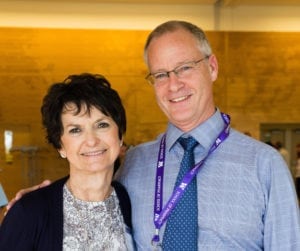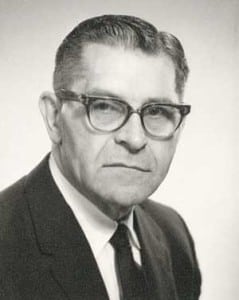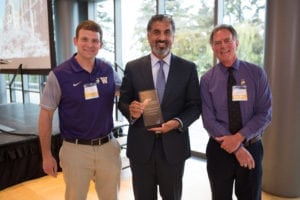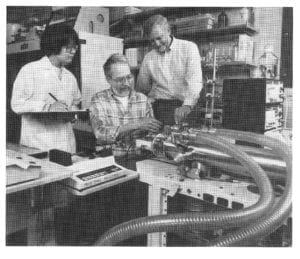
The story of the Department of Medicinal Chemistry is of a multi-generational approach to solving big problems in population health.
“Our network of faculty, alumni, and students is working to solve problems that affect millions of people worldwide: dementia, HIV, influenza, and other therapeutic areas. We train people to work at the molecular level to find better therapies and increased insight into these conditions.”—Bill Atkins, Sid and Joan Nelson Endowed Professor and Chair, UW Department of Medicinal Chemistry
Understanding and breaking down the mysteries embedded in small molecules and their mechanics is an effort that takes generations, not years, and one that accelerates as technology improves. No better place can that acceleration be seen than in the UW Department of Medicinal Chemistry.
Originally one department of pharmaceutical sciences, Dean Milo Gibaldi split it into pharmaceutics and medicinal chemistry to distinguish the disciplines. Looking back over the decades, we can see the Med Chem community like a family tree.

Faculty member Alain (Al) Huitric was a pioneer in applications of proton nuclear magnetic resonance (NMR) , recognizing its use for solving problems of structural organic chemistry, and was a mentor to many. Dean Emeritus Sid Nelson said Al inspired him to pursue teaching and research. Bill Trager received his PhD in Med Chem under Al’s direction and Bill, Sid, and Allan Rettie all worked in his lab.
Forty years ago, Al secured funding for an NIH National Institute of General Medical Sciences (NIGMS) pharmacological sciences predoctoral training grant, which has been a significant source of support for our graduate students. It is the longest continually running grant in UWSOP history. Training grants like this, research grants, and private support are critical with the waning of state support for research training. The UWSOP Corporate Advisory Board, one of the first corporate boards at the UW and vital partnership, was founded just over twenty years ago and brings our faculty and students together with leaders in the pharmaceutical industry, to enhance collaboration, training, networking, and research opportunities.

With its roots in the leadership of the Med Chem chairs Bill, Wendel Nelson, Allan, Kent Kunze, and Bill Atkins, Med Chem has trained graduate students and post docs who are now leaders in industry and academia, including: Larry Wienkers,’93, who went to Amgen and is a global leaderin P450-related drug metabolism research; Cyrus Khojasteh, ’98, an internationally recognized expert in drug metabolism and pharmacokinetics and the first drug metabolism expert at Genentech; Pharmacy assistant professor Cathy Yeung, ‘05, part of the Kidney on a Chip team; and Klarissa Jackson, who trained with Sid Nelson and Allan Rettie and went on to earn the first NIH grant in the history of Lipscomb University and is now at University of North Carolina College of Pharmacy. Med Chem continues to grow and thrive with innovative researchers like Rheem Totah, Abhi Nath, ’08, Libin Xu, Kelly Lee, and Mike Guttman, who was a post doc in the Lee Lab.
Mass Spectrometry

In the late 1970s, applications of mass spec technology to drug metabolism and pharmacokinetics became more prevalent, leading Bill Trager and Bill Howald to establish the UW Mass Spec Lab. When Tom Baillie joined Med Chem, he and Bill Howald acquired the latest equipment to support research across both departments, developing the interdisciplinary UW Mass Spectrometry Center.
To study with UWSOP’s top faculty in health economics and outcomes, medicinal chemistry, and pharmaceutics, click here for more information about our Graduate Programs in Medicinal Chemistry, Pharmaceutics, Pharmaceutical Outcomes Research and Policy, and Biomedical Regulatory Affairs.